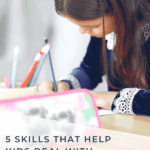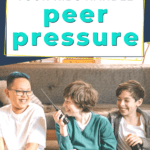How To Help Your Kids Handle Peer Pressure
Saying “no” to friends is hard. Here’s how to make it easier for kids to handle peer pressure so it doesn’t get in the way.
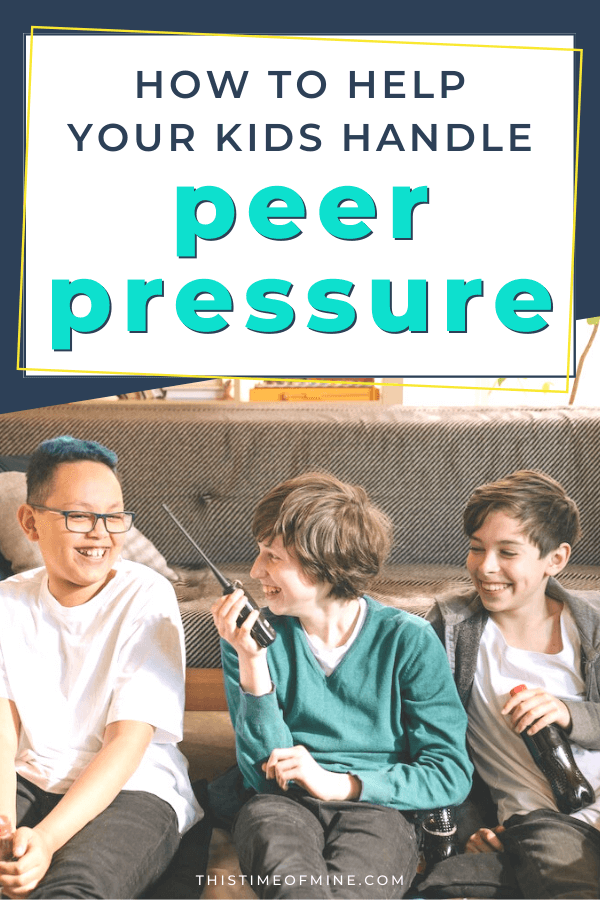
Being alone.
It’s one of the scariest things for many kids, and yet it’s something they have to face all the time, especially as they get older. Not in the physical sense, but in their feelings of belonging and connection with friends and peers.
Kids don’t want to be the only one that doesn’t fit in. They want to be accepted. Sure, some desire it more than others, but most need at least a little peer connection.
And sometimes that means making choices they wouldn’t normally make.
How can we help them? After all, we want them to be strong enough to make good choices when we aren’t around. Is that even possible?
The answer is simple: Absolutely.
The trick isn’t to teach your kids to stay away from peer pressure (that would be impossible) but to help them learn how to handle it. Doing so will give them the courage to stand alone, even when it’s scary. And to know that they’re not as alone as they think.
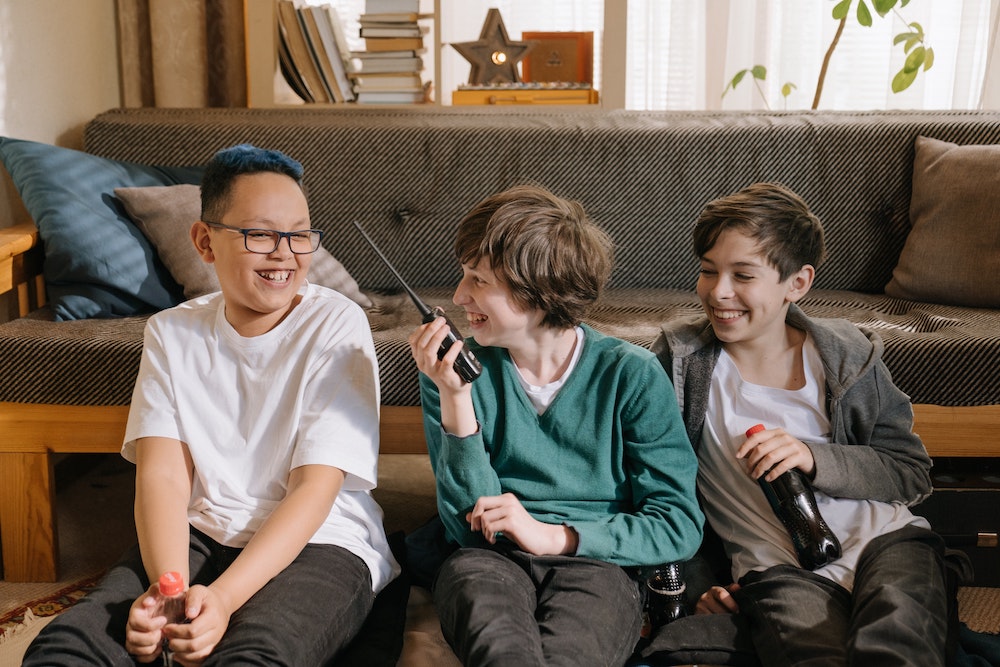
HOW CAN I HELP MY KIDS HANDLE PEER PRESSURE?
Making decisions is hard enough for kids. But it gets even harder when others get involved. From the way they dress to the way they talk or behave, kids can feel influenced by friends, classmates, teammates, family members, social media, and other places.
Of course, this isn’t always a bad thing. But when kids start to compromise and go against their better judgment, it can have a negative impact.
So how can parents get involved? How can we help our kids handle peer pressure?
Here are 5 strategies for guiding your kids through the decision-making process so they can keep making choices that align with their morals, personalities, and values.
1. TEACH YOUR KIDS TO MAKE DECISIONS IN ADVANCE
Some decisions only need to be made once. Then when the time comes, your kids won’t have to worry about making the right choice because they’ve already made up their minds.
To help your kids define where they stand, have them write two lists in a journal or on a digital device:
- Things I Will Always Do
- Things I Will Never Do
The first list can include things that align with their goals such as always turning in homework or committing to tell the truth. The second list will help them define what they want to stay away from such as drinking alcohol, inappropriate media, or skipping class.
Making decisions in advance helps kids know exactly what to do when the moment of decision comes. As a result, they will be less likely to give into peer pressure because the choice has already been made.
2. EDUCATE YOUR KIDS ON PEER PRESSURE
When it comes to teaching kids about peer pressure, we have to help them understand that it isn’t always easy to recognize.
As a child, I remember being taught about it in only one way: “Just because everyone jumps off a cliff doesn’t mean you have to.” In my young head, my only response was, “Well, duh”.
Turns out, peer pressure was a lot more complicated than that.
It’s easy for kids to say no to things that are completely against their natural personalities. But what about things that are more subtle?
By definition, it is pressure from someone to act, believe or behave in a certain way to be accepted. And it doesn’t always involve saying no to something big like smoking a cigarette.
So talk to your kids about what peer pressure actually is. Discuss things they might encounter in different situations (mean kids, inappropriate media, rule-breaking, etc.). And then problem-solve together, figuring out different ways to respond depending on the situation.
It will be much easier for kids to recognize and respond appropriately to scenarios when they have an action plan. When they know how to act and what to say.
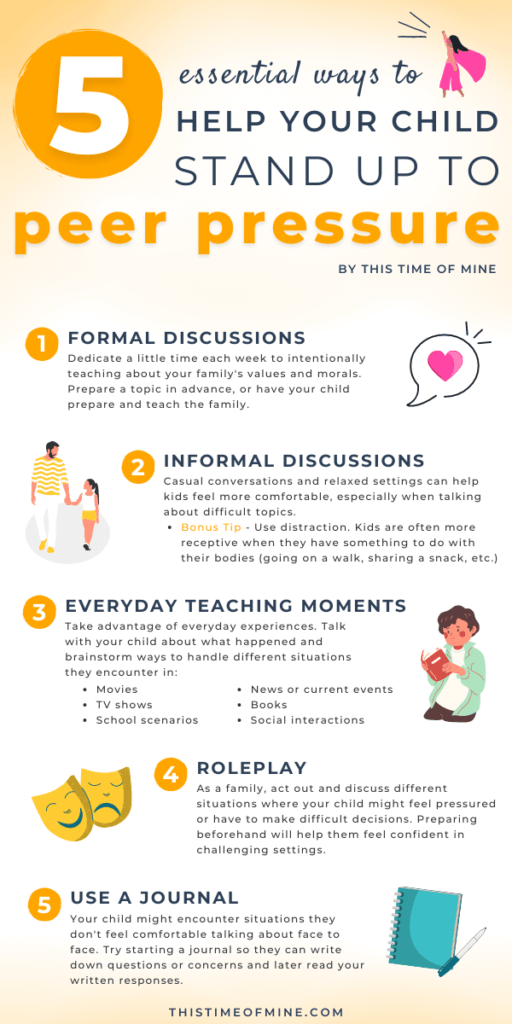
3. TALK OFTEN ABOUT MAKING GOOD CHOICES
As kids grow and change, so do their challenges. We can help them stay prepared by having regular discussions about making good choices despite peer pressure.
Here are a few ideas to get you started:
Formal discussions. These are done in family meetings or in private and are prepared for in advance.
Informal discussions. Often, kids open up more in informal settings and casual conversations. This is a great time to ask questions and get a dialog going.
Everyday teaching moments. Kids see and encounter difficult situations all the time (scenarios in movies or shows, situations at school, current events, etc.). Experiences like these provide powerful opportunities to teach and brainstorm ways to handle peer pressure.
Roleplay. When it comes to making good choices, it’s easier said than done. But when kids are armed with dialogue and practice, they’ll feel more prepared.
Journals. Sometimes it’s easier for kids to talk about peer pressure if they don’t have to do it face to face. Try starting a back and forth journal where they can write down any question and read your response.
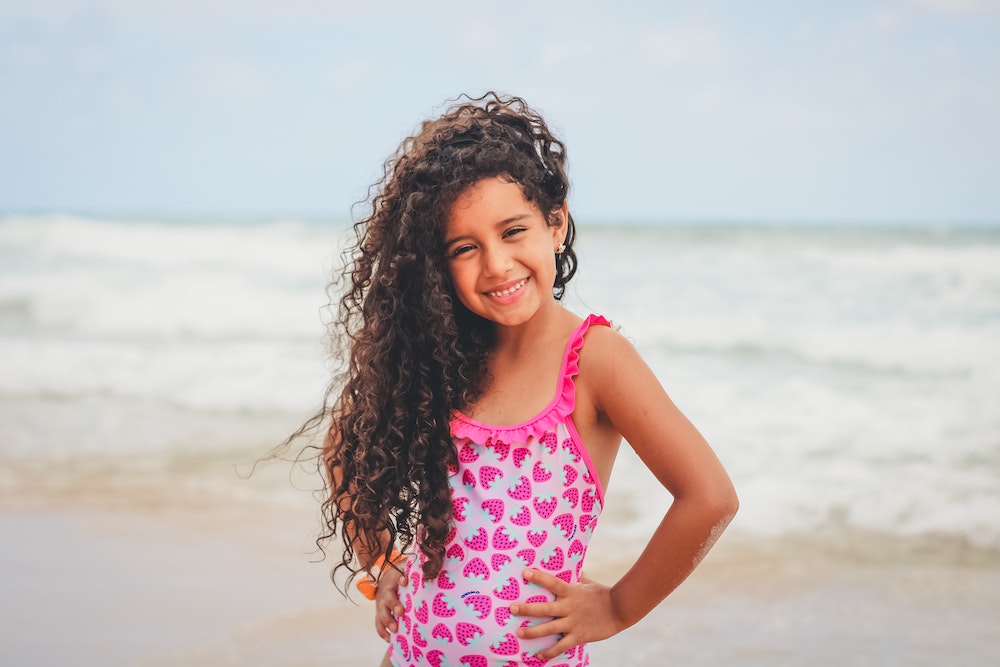
4. LET YOUR KIDS KNOW IT’S OKAY TO STAND ALONE
Kids often give in to peer pressure because they want to be liked and fit in. They don’t want to be made fun of for not going along or to be left out.
But sometimes, that means going against their better judgement.
To help them feel brave enough to stand their ground, teach your kids that it’s okay to be “the only one”. That courage doesn’t mean not being afraid, but doing something even when it’s scary.
And that more often than not, there are other kids who feel the same way as your kids. They might just need someone to be brave enough to stand up for what’s right so they can follow.
Even still, being alone can be scary. Help them think through what they’ll do if they do get left out, such as where to sit at lunch or where to hang out during recess or breaks. And make sure they know who they can turn to if they need help (teachers, specific kids, etc.).
To take it one step further, talk to your kids about noticing others who are alone or left out. Chances are, they could use a friend and ally too.
5. HELP YOUR KIDS UNDERSTAND WHO THEY ARE
When kids have a strong sense of self, they’re better equipped to handle peer pressure. They don’t feel the need to go along because they don’t need validation from a peer group.
You can build them up by:
Letting them know what YOU think of them. For example, if you find out someone called your child a mean name, wait before jumping in with a loving defense like, “What is she talking about? Everyone knows you’re …”. Instead, try, “Well I think you’re pretty fantastic.”
Investing in your relationship. Look for little ways to make them feel special and dedicate time to deepening your connection.
Providing opportunities to work through difficulty. Learning to set goals, accomplish hard things, and problem-solve are great ways to build resilience, optimism, and self-esteem.
Setting boundaries. Boundaries are not as limiting as kids often think. In fact, they help them feel safer. Rather than constantly wondering where the line is, they’ll know exactly what’s expected, morally and otherwise, giving them the confidence to make educated decisions.

IN SUMMARY, KIDS CAN BE STRONG ENOUGH TO HANDLE PEER PRESSURE WHEN THEY ARE PREPARED
Parents can play a big role in helping their kids make good choices. Once again, here are 5 ways to arm your kids with the tools necessary to deal with social influences:
- Teach your kids to make decisions in advance.
- Educate your kids on peer pressure.
- Talk often about making good choices.
- Let your kids know it’s okay to stand alone.
- Help your kids understand who they are.
Here are a few final ways you can support your kids:
- Talk about the importance of choosing good friends and what a good friend looks like.
- Encourage your kids to spend time with other kids who resist peer pressure.
- Get to know your kids’ friends.
- Be aware of how your kids are spending time online.
- Educate your kids on online safety and choosing appropriate media.
- Create backup plans to help your kids know how to get out of dangerous situations.
- Make sure they know they can come to you and that you will listen judgment-free.
- Arrange for opportunities to be alone with each of your children to talk.
Peer pressure is tough, and it’s not always easy to guide your kids in positive ways. But remember, it’s okay if you don’t know how to handle every situation. And it’s okay if they don’t always make the best choices.
As long as they know they can come to you, they’ve got an excellent foundation to build on.
OTHER HELPFUL POSTS:
- Dream Big: How To Help Kids Set Goals (In 4 Easy Steps)
- From Helpless To Hopeful: How To Raise Resilient Kids
- 10 Simple Ways To Teach Kids To Be Kind
- The Truth About Secrets: 4 Reasons Our Kids Don’t Keep Secrets
want to remember this?
PIN IT TO YOUR FAVORITE BOARD
Share this article:

